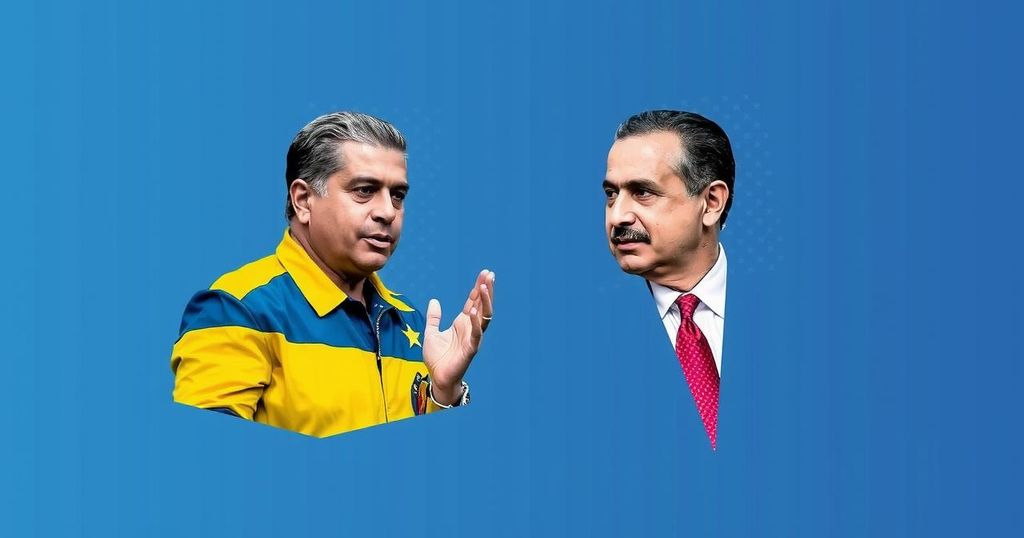Politics
BIDEN, CARACAS, CUBA, DEMOCRACY, DEPARTMENT OF THE TREASURY, EDMUND, EDMUNDO GONZÁLEZ, EUROPE, GONZÁLEZ, GONZALEZ, HIGH COURT, JUDICIARY, JUSTICE DEPARTMENT, LAW, MADURO, NICOLAS MADURO, NICOLÁS MADURO, NORTH AMERICA, POLITICS, SOUTH AMERICA, SPAIN, SUPREME COURT RULING, U. S, UNITED STATES, US, VENEZUELA
Isaac Bennett
0 Comments
U.S. Imposes Sanctions on More Maduro Allies Post-Election Repression
The U.S. has sanctioned 21 more allies of Venezuela’s Maduro over alleged post-election repression linked to July’s disputed election, escalating diplomatic actions aimed at supporting the opposition and promoting human rights in Venezuela. This follows prior sanctions and the recognition of Edmundo González as president-elect, amid challenges regarding the legitimacy of Maduro’s claims of electoral victory.
The United States has expanded its sanctions against 21 associates of Venezuelan President Nicolás Maduro, attributing to them acts of oppression following the contentious presidential election in July. Among those sanctioned are prominent officials, including the head of the national prison service and senior members of Maduro’s administration, adding to an extensive list of convicted individuals that features judges and other high-ranking officials. The Biden administration’s approach also recognized opposition figure Edmundo González as the legitimate president-elect of Venezuela, while imposing visa restrictions on additional officials believed to be involved in repressing the Venezuelan populace after the elections.
Despite Maduro’s declaration of victory, he has provided no credible evidence to substantiate his claims regarding the election results. González, who left Venezuela for Spain amid legal challenges, contends that he won the presidential election overwhelmingly. In September, the U.S. had already sanctioned 16 of Maduro’s allies for disrupting the electoral process and committing human rights violations. The impact of the recent sanctions remains uncertain as individuals previously punished still hold significant power within the Venezuelan government. Meanwhile, discussions among Venezuelan lawmakers continue regarding a bill that deems economic sanctions as a crime against humanity, proposing legal consequences for those endorsing such measures.
Venezuela has been embroiled in political turmoil, characterized by accusations of election misconduct and human rights violations. President Nicolás Maduro remains in power despite widespread international condemnation and allegations of repressive tactics employed to quell dissent. Following the disputed July elections, the United States has taken steps to hold accountable those who allegedly facilitated this suppression. This reflects a broader strategy by the U.S. government aimed at supporting democratic processes and promoting accountability within the Venezuelan political landscape.
The recent U.S. sanctions against Maduro’s allies further underscore the ongoing international response to the political crisis in Venezuela. By targeting key figures in the aftermath of the disputed election, the Biden administration aims to deter acts of repression and bolster support for opposition leaders. However, the substantial influence and power of sanctioned individuals within the Venezuelan government raise questions about the efficacy of such measures. Ongoing debates within Venezuela over the legality of sanctions suggest a contentious political atmosphere that remains highly polarized.
Original Source: abcnews.go.com




Post Comment